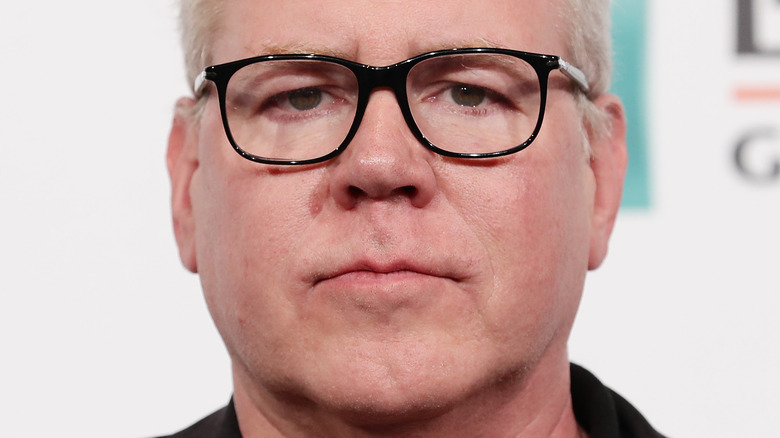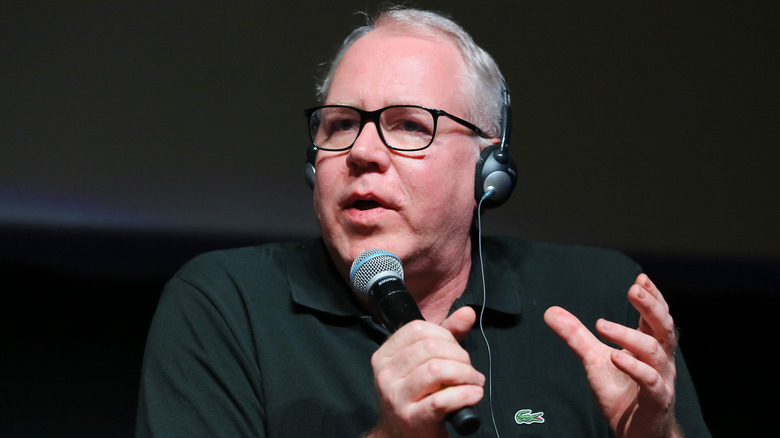American Psycho Writer Thinks Today's Horror Movies Are Explaining Way Too Much Backstory
After writing "Less than Zero" and "The Rules of Attraction," author Bret Easton Ellis concluded that he wanted his third novel to focus on two things: New York City and Wall Street. And that was the earliest genesis of "American Psycho." "I was going to write a novel that was much more earnest and realistic," Ellis explained in an interview on "Larry King Now." However, after observing the narcissistic behavior of some real-life Wall Street businessmen, Ellis decided to compose a "hallucinatory" tale about a yuppie serial killer. And, as it turns out, horror movies influenced the novelist.
"Being a child of the '70s, horror movies preoccupied me," Ellis said in an interview with Variety. "I don't know why, but there were a lot of them, and I was drawn to them. I think they were a reflection of something I was going through personally, because the childhood I had was really a free-range world made up completely of adults, and there was no sugarcoating anything."
Ellis' own shot at being personally involved in a horror film came to fruition when his 1991 novel, "American Psycho," was adapted into a feature film. It starred Christian Bale in the lead role of the yuppie serial killer, Patrick Bateman. While many aspects of Bateman's life are explored in director Mary Harron's film adaptation of Ellis' book, very little is revealed about Patrick's past.
Ellis insists modern horror movies provide too much backstory
Bret Easton Ellis believes the horror genre's bygone entries were more frightening and more effectual than modern-day horror, and they didn't require backstories. Rather, the mystery of those older scary movies was what made them so effective. "Especially in the '70s, horror movies did not have backstories or answers to them explaining the horror," Ellis said in an interview with Variety. "Why is Regan possessed by a devil in 'The Exorcist?' We don't know. Why does the shark cruise Amity [in 'Jaws']? You don't know. Where did Carrie White get her powers? I don't know."
Ellis elaborated that modern horror delves too deeply into the backstories of the villains' motives, and the author is of the opinion that explaining the monsters' backstories diminishes the effectiveness of a scary story. "'The Texas Chain Saw Massacre' is a great example," Ellis continued. "We just do not know what that family is. We get hints of what's happened to them, but we do not get an explanation at all as to what created Leatherface."
In the film's sequels, particularly in "The Texas Chainsaw Massacre Part 2," filmmaker Tobe Hooper and screenwriter L.M. Kit Carson filled out the backstory of Leatherface and his family of cannibals and killers. And Ellis quickly pointed out it was the mystery surrounding Leatherface's background and motivations that made the seminal movie work and the sequels struggle. "The backstories are usually just completely bonkers," Ellis emphasized in the same interview.

